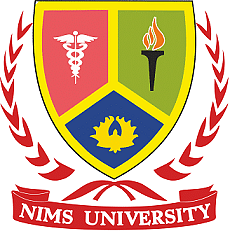Exploring
the World of Occupational Therapy: A Comprehensive Guide to Pursuing a BSc in
Occupational Therapy
Occupational Therapy (OT) is an essential
healthcare profession that focuses on enabling individuals to participate in
meaningful activities and lead fulfilling lives despite physical, mental, or
developmental challenges. BSc in Occupational Therapy is a gateway to a
rewarding career dedicated to helping people improve their quality of life. In
this blog, we will explore what a BSc in Occupational Therapy entails, the
curriculum, career opportunities, and the impact occupational therapists have
on society.
Understanding
Occupational Therapy
Occupational therapy at top college in Kerala
is rooted in the belief that participation in meaningful activities
(occupations) is crucial to health and well-being. Occupational therapists work
with individuals across the lifespan, from children with developmental delays
to elderly individuals recovering from strokes. Their goal is to help clients
achieve independence in daily activities, whether it be dressing, cooking,
working, or leisure activities.
OTs assess clients' needs, develop
intervention plans, and implement therapeutic activities to enhance their
abilities. This holistic approach considers physical, psychological, and
environmental factors that impact a person's ability to perform tasks. By
addressing these factors, occupational therapists enable clients to live more
independently and participate fully in their communities.
Why Pursue
a BSc in Occupational Therapy?
- Diverse Career Opportunities: A
BSc in Occupational Therapy opens doors to various settings, including
hospitals, schools, rehabilitation centers, mental health facilities, and
community organizations. Occupational therapists can specialize in areas
such as pediatrics, geriatrics, mental health, and physical
rehabilitation.
- Positive Impact:
Occupational therapists make a significant difference in people's lives by
helping them overcome challenges and achieve their goals. The profession
offers the satisfaction of knowing that your work has a direct and
meaningful impact on individuals and their families.
- Growing Demand: The
demand for occupational therapists is on the rise due to an aging
population, increased awareness of mental health issues, and advancements
in medical technology. This growth ensures job stability and opportunities
for career advancement.
- Interdisciplinary Collaboration:
Occupational therapists often work as part of multidisciplinary teams,
collaborating with physicians, physical therapists, speech therapists, and
social workers. This teamwork enhances the quality of care provided to
clients and allows for continuous learning and professional development.
Curriculum
of a BSc in Occupational Therapy
A BSc in Occupational Therapy at best affordable college typically spans four years and combines theoretical
knowledge with practical experience. The curriculum is designed to equip
students with the skills and knowledge necessary to excel in the field. Here
are some key components of the program:
1. Foundational
Courses
Students begin with foundational courses in
anatomy, physiology, psychology, and sociology. These courses provide a solid
understanding of the human body, mind, and social context, which are essential
for effective occupational therapy practice.
2. Core
Occupational Therapy Courses
Core courses delve into the principles and
practices of occupational therapy. Topics covered include:
- Introduction to Occupational Therapy: An overview of the history, philosophy, and scope of the
profession.
- Human Development:
Understanding the developmental stages from infancy to old age and their
implications for occupational performance.
- Activity Analysis:
Breaking down activities into components to assess and address clients'
needs effectively.
- Therapeutic Techniques:
Learning various therapeutic interventions and techniques used in OT
practice.
- Occupational Therapy Assessment:
Training in the use of standardized assessments to evaluate clients'
functional abilities and needs.
- Occupational Therapy for Physical Disabilities: Focusing on interventions for individuals with physical
impairments.
- Mental Health in Occupational Therapy: Addressing the role of OT in mental health settings and
interventions for mental health conditions.
- Community-Based Practice:
Exploring OT practice in community settings and developing programs to
meet community needs.
3. Fieldwork
and Clinical Placements
Practical experience is a crucial part of the
curriculum. Students participate in supervised fieldwork and clinical
placements in various settings, such as hospitals, schools, and rehabilitation
centers at top 5 affordable college . These hands-on experiences allow
students to apply their knowledge, develop clinical skills, and gain exposure
to different populations and practice areas.
4. Research
and Evidence-Based Practice
Students are introduced to research
methodologies and evidence-based practice. They learn to critically evaluate
research literature, conduct research projects, and apply evidence to clinical
decision-making. This component ensures that future occupational therapists are
equipped to provide high-quality, evidence-based care.
Career
Opportunities for Occupational Therapy Graduates
A BSc in Occupational Therapy opens up
a wide range of career opportunities. Graduates can work in diverse settings,
including:
1. Hospitals
and Rehabilitation Centers
In hospitals and rehabilitation centers,
occupational therapists work with patients recovering from injuries, surgeries,
or illnesses. They help clients regain independence in activities of daily
living, such as dressing, bathing, and eating, and facilitate their return to
work or school.
2. Schools
and Educational Settings
Occupational therapists in schools support
children with developmental delays, learning disabilities, and physical
impairments. They help students develop fine motor skills, improve handwriting,
and participate in classroom activities. OTs also work with teachers to create
inclusive learning environments.
3. Mental
Health Facilities
In mental health settings, occupational
therapists provide interventions for individuals with mental health conditions
such as depression, anxiety, and schizophrenia. They use therapeutic activities
to promote emotional well-being, develop coping strategies, and improve social
skills at best affordable college .
4. Community
and Home Health
Occupational therapists working in the
community or home health settings provide services to individuals in their
homes or local communities. They help clients adapt their living environments,
recommend assistive devices, and support independent living.
5. Geriatric
Care
OTs in geriatric care work with elderly
individuals to address age-related challenges such as mobility issues,
cognitive decline, and chronic conditions. They develop interventions to
enhance seniors' quality of life, maintain independence, and prevent falls.
6. Private
Practice and Consultancy
Some occupational therapists choose to work in
private practice or as consultants. This allows for greater flexibility and the
opportunity to specialize in areas such as hand therapy, ergonomics, or
pediatric therapy.
The Impact
of Occupational Therapy
The impact of occupational therapy extends
beyond individual clients to families, communities, and society as a whole. By
enabling individuals to participate in meaningful activities, occupational
therapists contribute :
- Improved Quality of Life:
Clients experience increased independence, confidence, and satisfaction in
their daily lives.
- Enhanced Social Participation: OT
interventions promote social inclusion and help clients engage in
community activities and social interactions at top 5 college kerala.
- Economic Benefits: By
supporting clients' return to work and reducing healthcare costs through
preventative care, occupational therapy contributes to economic stability.
Health
Promotion: Occupational therapists play a role in health
promotion and disease prevention by encouraging healthy lifestyles and
providing education on injury prevention and wellness.












